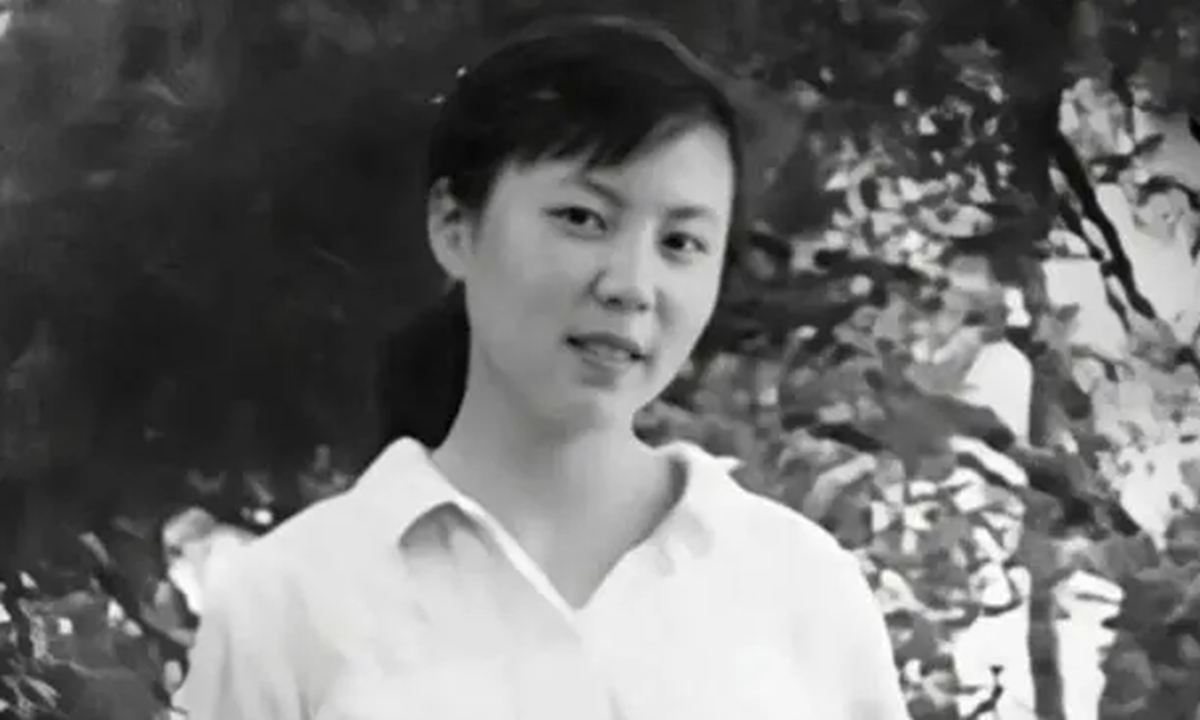
Zhu Ling. File photo.
Zhu Ling, the victim of a shocking thallium poisoning case which took place 29 years ago at one of China's top universities, died at age 50 from a brain tumor on Friday. On Sunday, a viewing was held in Beijing.
The death of Zhu has triggered widespread mourning among the Chinese netizens. With her case remaining unsolved decades later, many people are calling for justice for Zhu.
Zhu showed poisoning symptoms twice in the second half of 1994 and the first half of 1995 when she was studying at Tsinghua University. Her poisoning was not immediately diagnosed due to the lack of testing facilities in the hospital she visited. It was only several months later that thallium poisoning was confirmed and Zhu received corresponding treatment. In August 1995, Zhu woke up from a five-month coma, but her central and peripheral nervous systems were severely damaged.
Despite nearly 30 years of rehabilitation treatment, due to the irreversible damage caused by thallium poisoning, Zhu's intelligence, vision, motion skills, and language functions were not restored, leaving her with permanent and severe complications. Unable to take care of herself, Zhu was cared for in daily life by her elderly parents. In April, Zhu was diagnosed with a brain tumor. Eight months later, she passed away after her 50th birthday.
Although the public security authorities attached great importance to this poisoning case, it has remained unsolved due to a lack of evidence. Since its filing in May 1995, the case has never entered the litigation stage and was closed in August 1998. After the news of Zhu's death, many people expressed sadness and regret while calling for justice to prevail and expressing the hope that a relevant investigation could be reopened.
"Although Zhu can never wake up again, we hope that belated justice will provide an explanation to her parents and the public," many netizens wrote on social media platforms.
According to legal experts, a reopened investigation into this case is almost impossible. "The time of the incident occurred too long ago, and the evidence was already insufficient," a legal expert told the Global Times under the condition of anonymity. "It won't be reopened unless decisive new evidence emerges, which seems highly unlikely."
Chinese people have been paying continuous attention to this case from 30 years ago, not only out of a sense of legal consciousness but also out of a simple sense of justice, Zhu Wei, a vice director of the Communication Law Research Center at the China University of Political Science and Law, told the Global Times on Sunday.
"If justice cannot be had for this suffering family, many people will feel disappointed," he said, pointing out that this is a warmth and sense of justice shared among members of society.




